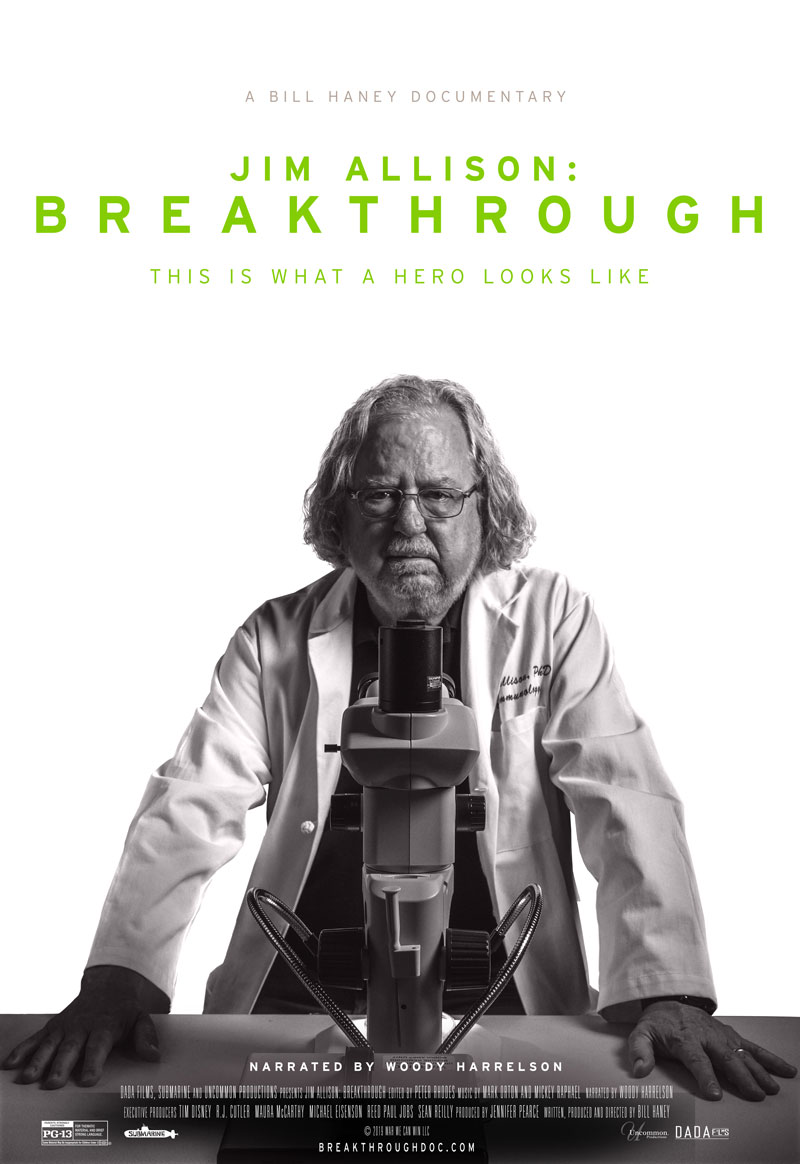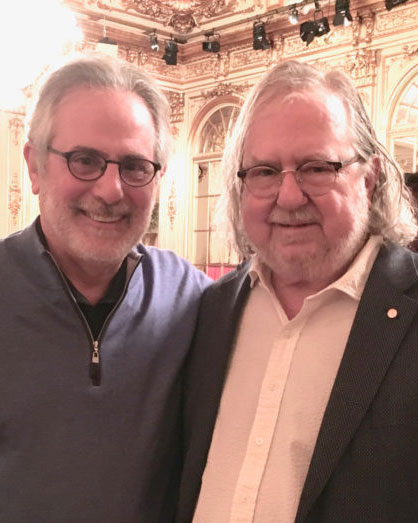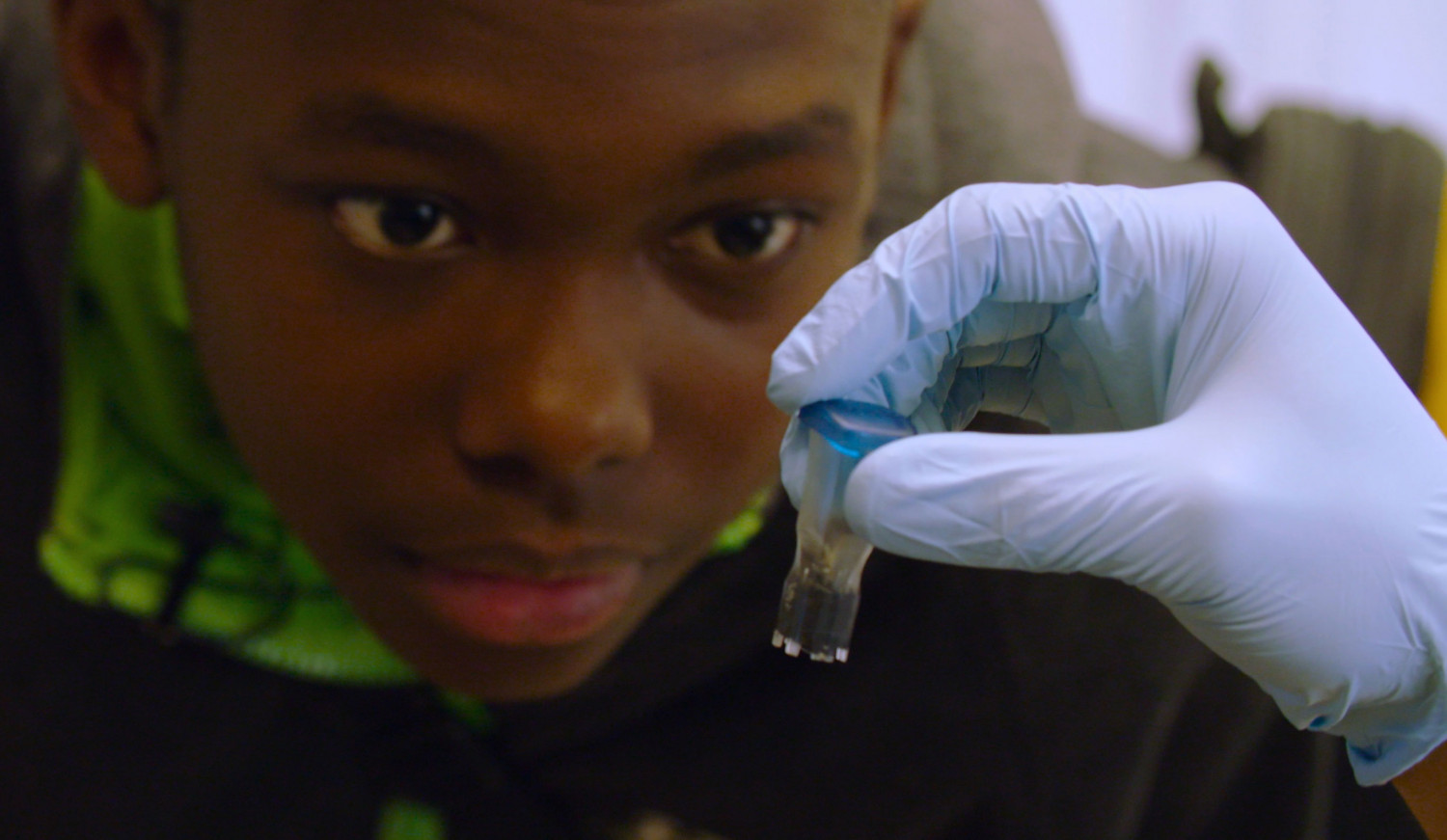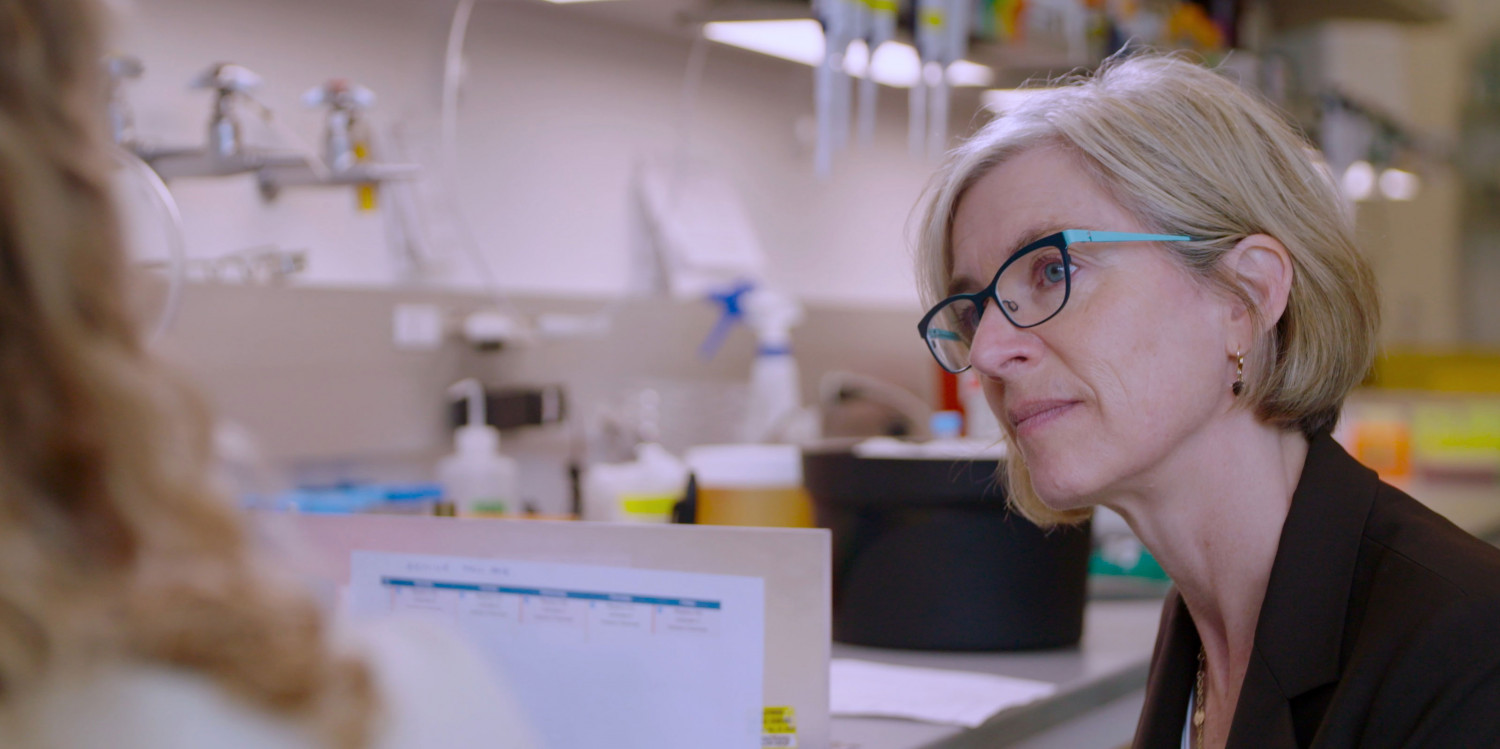
By Rachel Henderson
 |
| Poster courtesy Jennifer Pearce, Producer, Jim Allison: BREAKTHROUGH |
Basic research into how organisms function on a fundamental level is critical to our understanding of life, and it is at the core of MCB’s mission. But it can also launch breakthroughs in medicine — even though the implications for health may not be apparent at first. Take cancer immunotherapy and CRISPR/Cas9 gene editing, techniques made possible by basic research from MCB faculty members Jim Allison and Jennifer Doudna, respectively, that have tremendous potential to cure disease. Their groundbreaking discoveries are featured in two documentaries being screened now in select theaters.
Jim Allison: Breakthrough, narrated by Woody Harrelson, tells the story of how Allison, now at the MD Anderson Cancer Center, determinedly pursued his research into T cell function as a way to treat cancer during the almost 20 years he was at UC Berkeley, despite facing significant skepticism from the broader scientific community.
“I don’t know if I could have accomplished this work anywhere else than Berkeley,” Allison said in an interview, reported by Berkeley News. “There were a lot of smart people to work with, and it felt like we could do almost anything.”
By uncovering how these immune cells are normally suppressed, his group was able to block this inhibition to unleash the immune system to fight cancer. The discovery led to the development of a treatment for advanced melanoma that has been used in thousands of patients, and in many cases, appears to have completely eradicated their cancers. The discovery also launched hundreds of new clinical trials and earned Allison the Nobel Prize in Physiology or Medicine in 2018.
 |
| Jim Allison (R) with David Raulet (L), MCB Professor of Immunology & Pathogenesis and IVRI Director, at a celebratory party in Stockholm after the Nobel Ceremony. Photo courtesy David Raulet. |
In an interview with Berkeley News, MCB Professor David Raulet said of Allison: “His actions helped create the superb research environment here, which is so conducive to making the fundamental discoveries that will be the basis of the next generation of medical breakthroughs.”
CRISPR/Cas9 — a naturally occurring system used by bacteria to defend themselves against viruses — is another fundamental discovery with world-changing implications. The documentary Human Nature, from executive producer Dan Rather, explores this method of targeted gene editing that Doudna was instrumental in helping develop through her research on RNA at Berkeley.
In a talk at UC Berkeley’s International House earlier this year, Doudna said, “… a lot of times in science, and this is something I love about being a scientist, we do experiments in the lab because we have an idea about something. We have something we want to test, and the result isn’t something you could have predicted. It takes your work in an unexpected direction. And that was exactly the case for the work that led to the CRISPR-Cas9 method for genome editing, because this was a project that began as a curiosity-driven experiment to understand how bacteria fight viral infection.”
 |
| David Sanchez, a teenager with sickle-cell disease, looks at a tube containing the CRISPR gene editing machinery. Clinical trials are already underway to cure the disease. Photo courtesy Human Nature documentary. |
From that start, Doudna’s work progressed to help reveal how CRISPR/Cas9 could be harnessed to selectively remove and replace specific genes, giving it the potential to cure numerous diseases. CRISPR/Cas9 is now being tested in clinical trials for patients with cancer and genetic disorders, such as sickle cell disease. Human Nature features Doudna, other scientists, and patients discussing the potentially transformative applications of this new technology, as well as the ethical questions surrounding it.
Together, these documentaries highlight how Doudna’s and Allison’s intense drive to answer open questions in science and their ability to pursue their interests at Berkeley paved the way for life-changing breakthroughs in science and medicine.
For more information about the films and to find a screening near you, visit:
Jim Allison: Breakthrough documentary website
Human Nature documentary website
The Jim Allison: Breakthrough film will also be available to rent/buy on iTunes and Amazon starting December 24th.
 |
| Jennifer Doudna in her lab at the Innovative Genomics Institute in Berkeley, CA. Doudna has tried to call public attention to the ethical implications of the CRISPR technology she helped invent. Photo courtesy Human Nature documentary. |
Back to Main Fall 2019 Newsletter Page
| Connect With Us! | ||||
MCB Twitter |
 MCB Facebook |

LinkedIn |
 Cal Alumni Network |
 Give to MCB |
